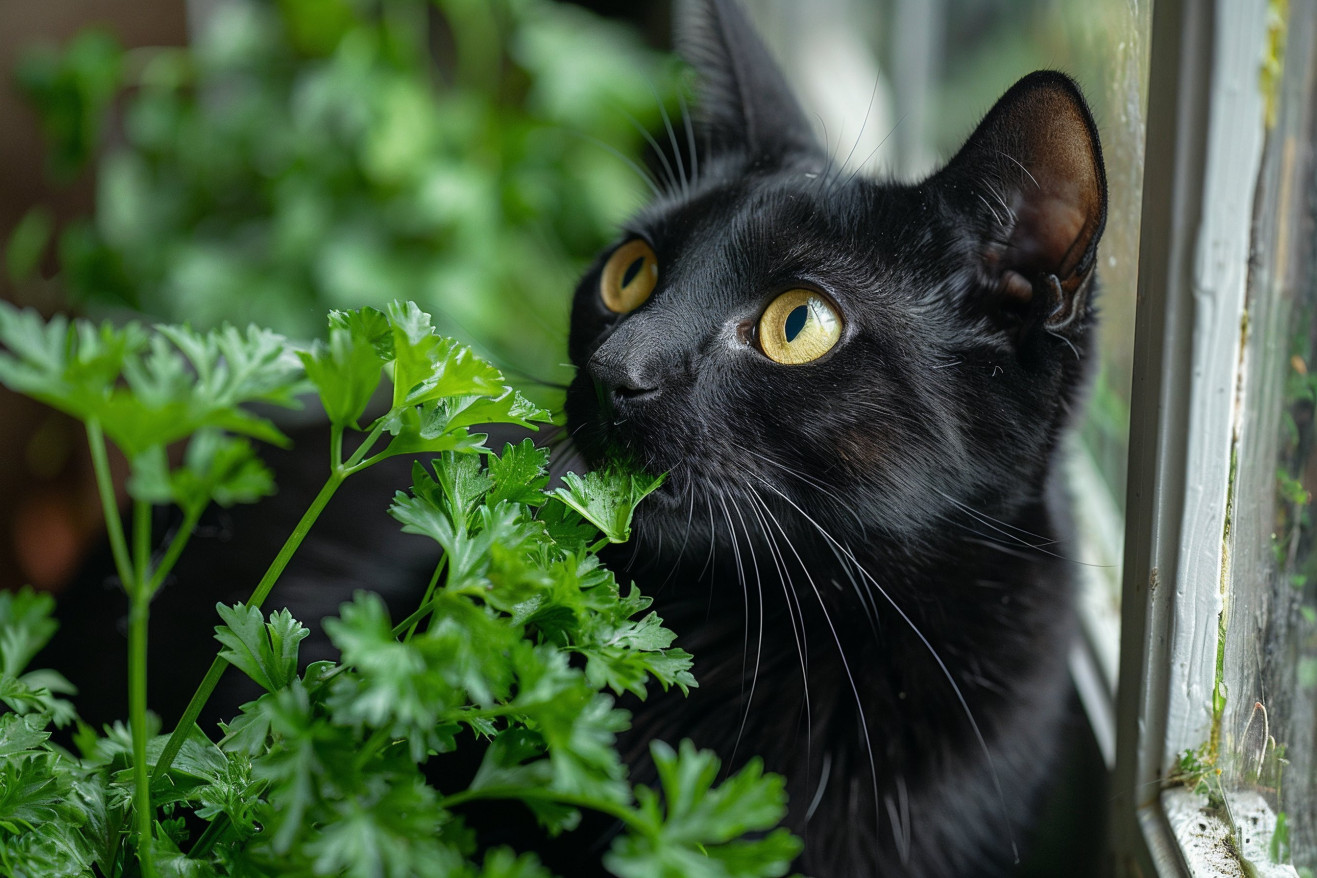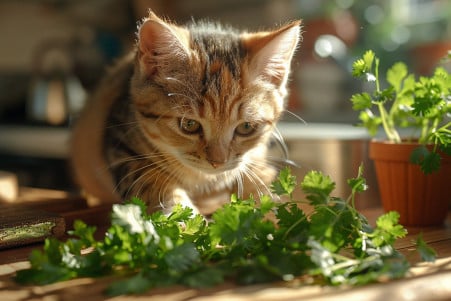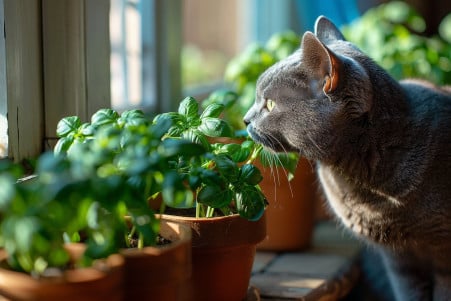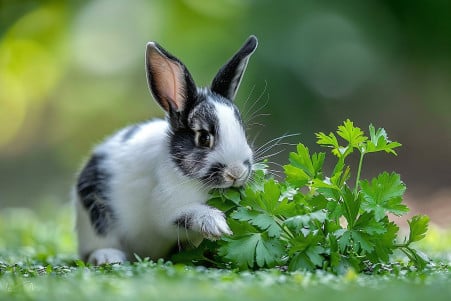Can Cats Eat Parsley? A Look at this Herb for Felines
6 June 2024 • Updated 6 June 2024

If you’ve ever been cooking and had your cat come up and start sniffing around, you may have wondered if it’s okay to share some of your fresh parsley with them. The good news is that parsley is safe for cats to eat in small amounts. Not only is it non-toxic, but it also contains some vitamins and other nutrients, including vitamins A and C and some compounds that can help with bad breath. That said, parsley should only be a small part of your cat’s diet since it doesn’t contain everything they need to stay healthy.
We’ll go into detail on information from trusted sources like veterinarians and animal nutritionists to explain the benefits and potential drawbacks of giving your cat parsley. We’ll also cover how much parsley is safe for cats, how to introduce new foods to your cat, and some fun ways to let your cat enjoy this popular herb. With this information, you can decide whether or not to let your cat enjoy some of your parsley.
Can cats eat parsley?
How to Introduce Cats to New Foods
As with any new food, including herbs like parsley, it's important to introduce it to your cat's diet slowly over the course of 1-2 weeks. According to PetMD, changing a cat's diet too quickly can lead to digestive upset. To avoid this, mix a small amount of the new food with your cat's regular food and increase the ratio over time.
Keep an eye on your cat for signs of digestive upset, such as vomiting, diarrhea, or a lack of appetite, which could indicate an intolerance or allergy. If you notice any of these symptoms, discontinue the new food and speak with a vet. According to PetMD, food allergies in cats are most commonly caused by beef, fish, chicken, and dairy, so it's important to be cautious when introducing new proteins.
While food allergies are rare in cats (PetMD estimates that only 1% of cats have them), it's always best to be safe and introduce new foods slowly to avoid any potential problems. By doing this, you can ensure that you're expanding your cat's diet in a safe way while keeping an eye out for any potential issues.
Other Herbs Safe for Cats: Other Options to Consider
While parsley is safe for cats in moderation, there are other herbs that are safe and potentially beneficial for cats. According to Season Herbs, basil, coriander, rosemary, sage, and thyme are all safe for cats in small amounts.
Catnip, valerian root, and cat grass are all examples of herbs that are safe for cats and have other benefits, such as calming or enriching cats. The Sage explains that these herbs can have a variety of benefits for cats, including stimulating mood, supporting the immune system, and aiding digestion. Some other herbs, including echinacea, milk thistle, and dandelion, can have a variety of health benefits for cats, including supporting the immune system and aiding digestion.
That said, it’s important to talk to a vet or animal nutritionist before giving a cat any herbs or supplements to make sure that the herbs are given in the right amounts and in the right way. As Leaf and Paw explains, while the herbs listed above are safe, giving a cat too much of any one of them can cause an upset stomach.
Parsley Portion Control: How Much Is Too Much?
Although parsley is safe for cats in small doses, it's important to know how much is too much to avoid potential toxicity. According to Catster, flat-leaf parsley is safer for cats than spring or curly-leaf parsley, which has higher levels of furanocoumarins.
The general consensus among experts is that cats should be limited to 1-2 teaspoons of parsley per day, and pregnant and nursing cats should avoid it altogether. Catster also says that parsley water, which is sometimes recommended for cats with urinary issues, should be given in small doses (1-2 teaspoons per day) and with caution.
It's also important to watch for any signs of photosensitivity in cats, including skin irritation and sunburn, and to stop giving cats parsley if these symptoms occur. By knowing the right doses and potential dangers, you can make sure your cat gets the right amount of parsley.
How to Add Parsley to a Cat's Diet: Fun and Safe Recipes
If your cat likes the taste of parsley, there are fun and safe ways to add a little bit of the herb to their diet. As noted by PetMD, you can sprinkle finely chopped parsley on top of your cat's regular wet or dry food to add a little bit of flavor. You can also mix parsley into homemade cat treats or put it in treat molds and freeze it for a cool treat.
Parsley water or broth can also be given to cats as a way to help them stay hydrated, but it should be given in small amounts, according to Catster. It's also important to remember that, as noted by Hill's Pet and Royal Canin, whenever you introduce a new food to your cat, including parsley, you should do so gradually and watch for any signs of an adverse reaction.
Conclusion: A Balanced Approach to Parsley and Feline Nutrition
Parsley can be a safe and potentially beneficial addition to a cat's diet when introduced gradually and in moderation. It's essential to monitor a cat's reaction to parsley and discontinue use if any adverse effects, such as photosensitivity or digestive issues, are observed. While parsley may offer some nutritional benefits, it should not be relied upon as a primary source of nutrition or used as a substitute for veterinary care.
Consulting with a veterinarian or animal nutritionist is recommended before making significant changes to a cat's diet or introducing new herbs or supplements. A balanced and species-appropriate diet, combined with regular veterinary care, is the best approach to ensuring a cat's overall health and well-being.


